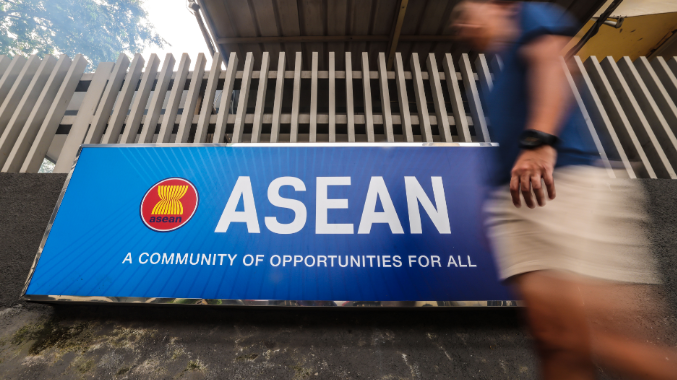Member States to Explore Strategies for Economic Recovery and Enhanced Regional Cooperation
SINGAPORE: The Association of Southeast Asian Nations (ASEAN) has agreed to explore new ways to enhance regional supply chains as part of its efforts to support economic recovery following the COVID-19 pandemic, announced Singapore’s Ministry of Trade and Industry (MTI) on Wednesday (Mar 16).
The 28th ASEAN Economic Ministers’ Retreat, hosted by ASEAN chair Cambodia via video conference, saw Minister for Trade and Industry, Gan Kim Yong, propose three key areas of focus. These include the importance of unity and maintaining an “open, rules-based regional economic integration” to address economic uncertainties such as inflation, and challenges arising from geopolitical tensions and the ongoing pandemic.
Minister Gan also stressed the need for ASEAN to respond rapidly to these challenges by strengthening regional supply chains and modernising ASEAN’s free trade agreements. He highlighted the importance of positioning ASEAN as a “progressive and dynamic regional bloc” through collaboration in emerging sectors like digital and green economies.
In response, ASEAN member states have agreed to explore additional measures to bolster regional supply chains. MTI stated that ASEAN is working towards extending the validity of the Memorandum of Understanding (MOU) on the Implementation of Non-Tariff Measures (NTMs) for Essential Goods until November 2024. The initiative also seeks to expand the list of essential goods to include staple food items and products relevant to vaccine manufacturing and distribution, in consultation with businesses.
Furthermore, the retreat discussed accelerating the safe resumption of cross-border travel within the region and launched negotiations to upgrade the ASEAN Trade in Goods Agreement (ATIGA). The objective of the ATIGA upgrade is to address non-tariff barriers, promote transparency, and enhance participation in global and regional supply chains. The agreement will also focus on emerging issues like digitalisation and the green economy.
The ministers also emphasised the need for deeper collaboration in the digital and green economies. ASEAN is progressing on digital initiatives under the Bandar Seri Begawan Roadmap on Digital Transformation, which includes expanding the ASEAN Single Window to ASEAN’s Dialogue Partners, creating an ASEAN-wide Unique Business Identification Number Network, and advancing the ASEAN Digital Economy Framework Agreement.
In addition, ASEAN is working on a regional strategy for carbon neutrality and building a framework for sustainability cooperation in economic agreements. Minister Gan reiterated Singapore’s support for Cambodia’s ASEAN chairmanship priorities, which aim to strengthen supply chains and ensure that ASEAN’s network of Free Trade Agreements (FTAs) remains relevant and business-friendly in the face of global challenges.








